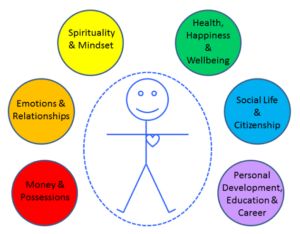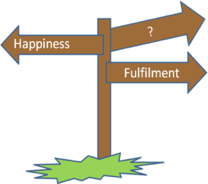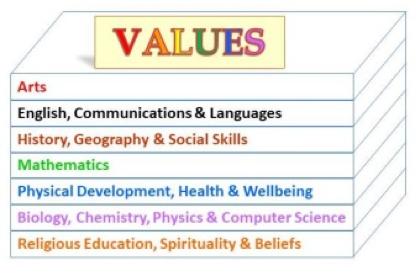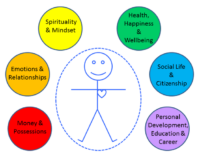WHY VALUES LITERACY MATTERS
by Rosemary Dewan, CEO of the Human Values Foundation

When we understand our own values, other people’s values, the values influencing society and the values affecting the environment, we are better positioned to choose and skilfully apply appropriate values within different contexts, thereby positively impacting real-life situations.
What are values?
 |
Values are:
- things that we ‘value’ i.e. which are important to us and central to our lives both as individuals and collectively
- deeply held principles that guide our thinking, choices and behaviours and influence how we manage our emotions.
|
 |
Values are:
- central to who we are – and those we most cherish need to be present in our lives for us to feel happy and fulfilled
- motivators, driving forces, what we are passionate about – factors underpinning actions, responses and successes.
|
 |
Values are:
- like a moral compass, determining priorities and guiding how we live our lives, giving it meaning and direction
- our barometers – when we and others honour and respect certain values, we feel OK but when they are dishonoured in some way, our emotions may be negatively impacted.
|
What is Values Literacy?
VALUES LITERACY can be considered as understanding how to select values so as to think, make choices and behave in purposeful ways that energise the individual or group and others.
The conscious application of carefully considered values is empowering. It’s conducive to consistency and living authentically in accordance with what those involved believe can make tangible, enriching differences, especially to the happiness and wellbeing of all living things and the long-term health and beauty of our planet.
 |
What are the benefits of gaining a fluency in values?
It builds confidence, self-esteem and effectiveness. Values-based ‘SPIES’ are agents of change and improvement. They integrate, advance and enrich participants’ Spiritual, Physical, Intellectual, Emotional and Social development and consequently help to raise mastery and performance in all these aspects of daily life. |
 |
What effect does a values-led life have on wellbeing?
It’s transformative! There is a sense of well-being when we flow with our innate drivers and priorities. As we habitually draw on meaningful values, this toolkit helps us engage with inspiring thinking processes, manage our emotions and behaviour patterns and respond creatively to challenges and opportunities. This deliberate practice enhances all the dimensions of our lives and what we do. |
So where do we start?
- Identify your own most important ‘core’ values; consider how their priorities may change and be influenced by life experiences and the extent to which you are living them.
- Be a good role model and coach for the emerging generation so they can discover for themselves the happiness and fulfilment that flow from a grounding in consciously trying to live an informed, whole-person, values-based life.
And then what?
 |
- Consider how young citizens-in-the-making absorb, copy, explore and experiment with values in different ways as they mature.
- Try and actively support them, especially as they begin to sense and understand the significance of values like kindness, trust, obedience, fairness, respect, responsibility, learning, independence, justice, creativity and diversity.
|

|
Promote good, high quality, systematic VALUES EDUCATION early in children’s learning journeys because research shows it is:
- essential to effective schooling
- positively impacts all the important educational measures
- is a worldwide, contemporary phenomenon
- fits well with updated brain and pedagogical research, and
- is means to holistic student and teacher wellbeing.
|
Rosemary Dewan, June 2022
The Big Think | Creating Meaningful Relationships in Education (the-big-think.org)
Human Values Foundation









